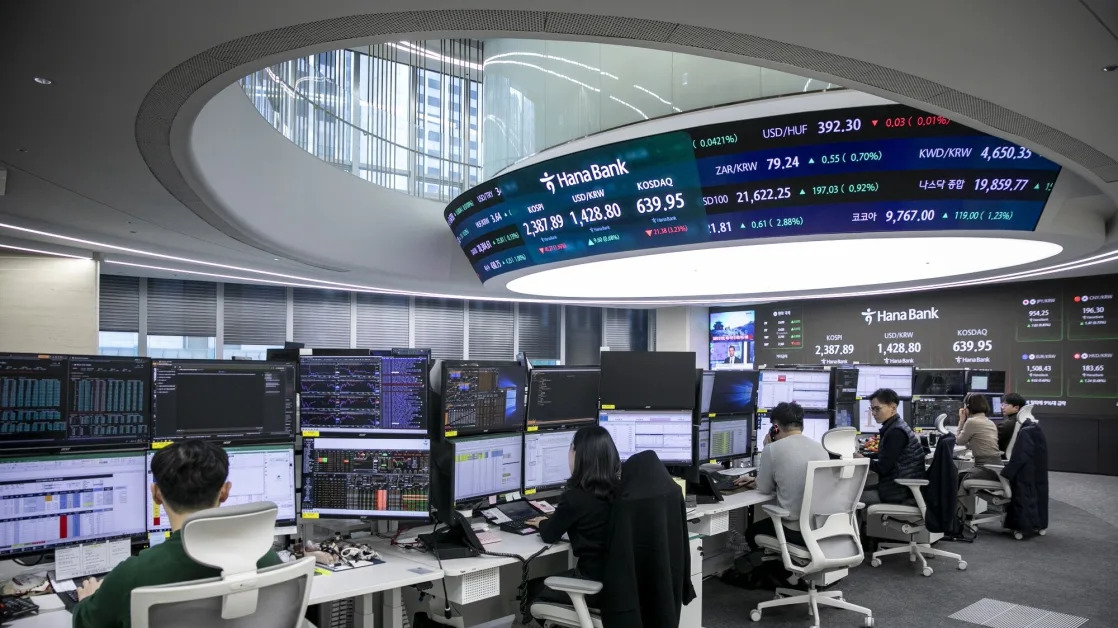(Bloomberg) -- South Korean equities rose for the first time since last week’s short-lived martial law thrust the country into political turmoil. The won climbed against the dollar.
The Kospi Index closed up 2.4%, rebounding from the brink of bear market territory. The small-cap Kosdaq gauge jumped 5.5%. The aggregate market value of companies included in the two benchmarks declined by $100 billion in four sessions through Monday.
The rebound comes as authorities have repeatedly vowed all steps to stabilize sentiment, describing the latest market moves as “excessive” when considering the country’s economic fundamentals. While political uncertainties remain — the opposition is still pushing for President Yoon Suk Yeol’s ouster after he narrowly survived an impeachment vote — some investors see Tuesday’s rally as a sign that market sentiment is on the mend.
“Markets may be beginning to stabilize, as investors assess the broader economic outlook amid the unfolding political developments,” said Manish Bhargava, chief executive officer at Straits Investment Management in Singapore. The equities rebound “signals cautious optimism after a turbulent period marked by political instability.”
The won rose as much as 0.4% to 1,425.50 per dollar on Tuesday, while the nation’s 10-year bond futures slipped. Down nearly 10% against the greenback this year, the Korean currency has underperformed its peers in Asia.
Despite Tuesday’s advance, it is likely that markets will see more volatility as the political wrangling continues. Yoon is banned from traveling overseas amid a series of probes related to his martial law decree, and a local report said the ruling party will disclose a road map for an “orderly exit” of the president on Tuesday.
Institutional investors boosted their holdings of Kospi members on Tuesday — extending a pattern seen in recent sessions — while foreigners and retail investors sold. The benchmark fell to oversold territory on Monday.
Korean equities were already among the world’s worst performers this year before the political drama unfolded, with Donald Trump’s election win and China’s fragile economic outlook weighing on the trade-dependent economy. A lackluster performance by Samsung Electronics Co., the country’s largest stock, has also dragged on the benchmark.
“This is just a reversal of recent moves, since there’s actually not much change on the politics side,” said Marcello Seongsoo Ahn, a portfolio manager at Quad Investment Management Co. “Caution remains as some development likely to happen over the next 10 days.”
--With assistance from Winnie Hsu, Hooyeon Kim and Abhishek Vishnoi.
(Updates with moves as of market close.)


